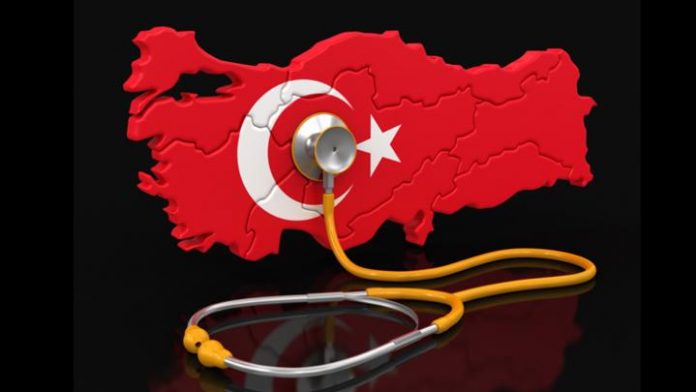Turkish President Erdogan signed an emergency presidential decree about laser hair removal on live television.
For political reasons Turkish President Erdogan signed an emergency presidential decree about laser hair removal on live television.
Turkish President Erdogan signed into law an unprecedented emergency decree on hair removal. The law was published in the Official Gazette on March 30 and went into effect immediately. The law allows beauticians the right to operate certain tools to perform laser hair removal.
Dermatologists argue that certain types of instruments to remove hair from its roots permanently through the use of lasers should not be allowed in beauty salons. Over the years, there have been thousands of cases where people seeking hair removal were hospitalized with severe burns and other skin deformities and infections due to improper applications of the technology. So the Health Ministry decided only hospitals or clinics that pass its approval should be permitted to operate these machines.
The right to issue decrees under the emergency law was used for laser hair removal.
While the beauty industry is growing in Turkey the huge increase in legal and illegal saloons and hair removal studios means that treatment costs and average spending per person is significantly below European rates. Beauty salons are popular among young people for hair removal because the shops provide a cheaper alternative to professional clinics.
Professional dermatologists are concerned that this permission could cause more harm than good. They worry that there is insufficient professional guidance for performing these procedures. Also many hairdressers or beauty salons are small-scale, and t most can only afford second-hand, malfunctioning instruments that can cause serious burns and other damage.
Men seek removal of facial hair above the cheekbones, on their arms, back and pubic area. Most women ask for a permanent complete body hair removal.
While Turkey has seen a decrease in European tourists and medical tourists, numbers from the Middle East have increased, often seeking cosmetic surgery or laser hair removal at very cheap prices.
According to official statistical body Turkstat, 2014 was the peak of medical tourism numbers, including cosmetic surgery and hair transplants,with the number of medical tourists at 414,658, including 86,011 Turkish citizens who live in foreign countries.
According to Turkstat’s figures the total number of tourists fell from 35 million in 2015 to 25.4 million in 2016 -the lowest for nine years. January saw the 18th monthly consecutive decline; due to security fears following several terror attacks. Estimates for 2017 could be as low as 20 million. Desperate hotels are offering prices at 70% lower than in 2015.
According to the Development Council of Health Tourism in Turkey, 60,000 medical tourists seek hair transplants. Clinics offer package deals that include hotel bookings, private pick ups from and drops to the airport. Between 150 and 500 hair transplant surgeries are performed every week in Turkey. With new clinics opening each week there is intense price competition.
Turkey prices used to be a quarter of European prices and by 2016 that was down to a tenth but 2017 price falls see falls down to a twentieth or even lower. To stay in business many clinics use cheap unqualified labour, or illegal labour from Syrian refugees that act as touts to attract Arab-speaking customers. While there exist rules and regulations on the hair transplant industry, most operations are performed by nurses and technicians rather than doctors.








 ©2024 All rights reserved LaingBuisson
©2024 All rights reserved LaingBuisson 


